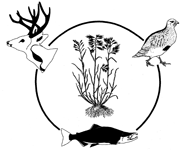Extension Wildlife & Fisheries Specialists Conferences

Triennial National Wildlife and Fisheries Extension Specialists Conference: 8th (1996)
Date of this Version
June 1996
Document Type
Article
Abstract
While professionals readily desire continuing education programs to sharpen and update their skills, distractions, demanding schedules, lack of employer support, and expense often create barriers for regular continuing education attendance. Many professions such as accountants, pharmacists, and lawyers have a formal certification criteria which requires post-graduate testing to obtain certification and then participation in continuing education to maintain certification. The prestige of becoming a CPA, a licensed engineer, or a member of the bar carries an assurance of a certain level of competence and often translates into higher salaries for those who have achieved it. Therefore, there is a motivation to obtain this certification and to obtain the continuing education requirements necessary to maintain it.
Unfortunately, the wildlife profession does not have this formalized structure. Certification can be obtained by merely proving successful completion of an approved array of courses. There is no accreditation of schools from where these courses are offered and no assurance of competence for those completing this coursework. In addition, once certification is obtained, there is no continuing education requirement to maintain certification. Besides creating very little incentive or prestige for certification, there is little incentive for individuals to seek and participate in formal continuing education activities.
The Society of American Foresters (SAF) is similar to the Wildlife Society in that they do not require postgraduate testing to obtain certification. However, they do require graduation from accredited programs, and experience is required in order for individuals to become certified. A continuing education requirement of 60 credit hours in 3 years is needed to maintain certification. Prior to their certification program, SAF required graduation from an accredited school to obtain full SAF membership. SAF also has a voluntary continuing forestry education and professional development recognition program (CFE program), which is similar to the Wildlife Society's Professional Development Program. Both programs are voluntary, and both societies issue certificates to recognize a required amount of continuing education credits within a specified period of time. The difference seems to be in the level of participation in the two programs. In Indiana, over 70% of active SAF members regularly attend in-state CFE programs and meet certificate requirements. Since 1993, 7 members have earned 11 CFE certificates. Only three Indiana members of The Wildlife Society have participated in and obtained the Professional Development Certificate. The primary employer of foresters and wildlife biologists (Indiana DNR) does not offer a hiring or pay incentive for those participating in these programs. Therefore, the primary difference in participation rates appears to lie in the responsibility of the state chapter of the society in monitoring and recording an individual's progress towards this certificate.
The SAF CFE program is managed at the state society level by an SAF CFE contact. Primary responsibilities include: 1) evaluation and approval of continuing education activities held within the state, 2) thorough examination of all applications for CFE certificates from applicants in the state society, 3) forwarding of approved applications to the national office, 4) promotion of CFE programs and continuing education opportunities to foresters and employers, and 5) direct and continuing contact with the state education or continuing education committee.


Comments
Published in W. Daniel Edge, ed. Proceedings of the 8th National Extension Wildlife and Fisheries Specialists Workshop: Educational Challenges for the 21st Century. [1996] Corvallis, Oregon: Oregon State University, 1998.